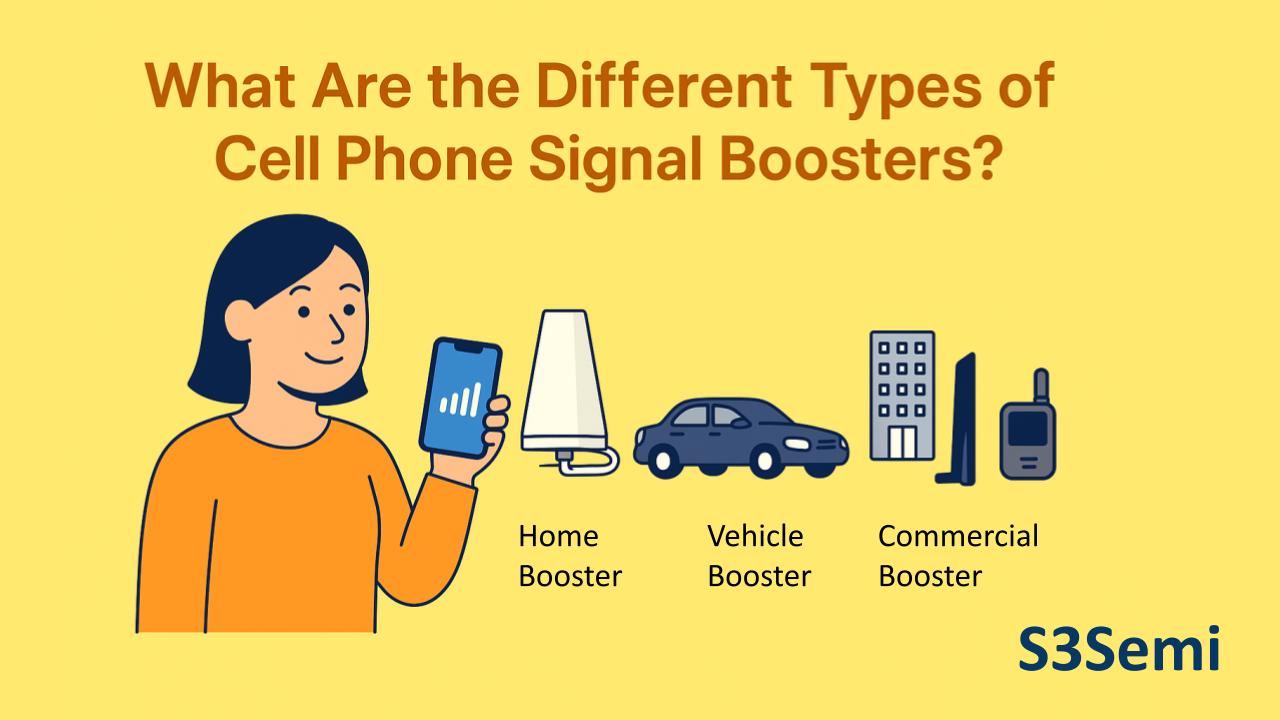📡 If you’ve ever struggled with dropped calls, sluggish data, or spotty reception, a cell phone signal booster might be your solution. But not all boosters are built the same — and the best one for you depends on where and how you need to boost your signal.
This guide explores the different types of signal boosters, helping you choose the right one based on your environment and usage needs.
🏠 Home Boosters
Best for: Houses, apartments, cottages, or cabins
Home signal boosters are designed to improve cell signal inside a fixed location. They typically consist of:
- An outdoor antenna (to capture signal)
- A signal amplifier
- An indoor antenna (to rebroadcast the signal)
These boosters vary in power and coverage:
- Entry-level models cover 1–2 rooms
- Mid-range models can handle 1,500–5,000 sq ft
- High-end models cover whole homes (up to 7,500+ sq ft)
Popular examples:
- weBoost Home MultiRoom
- SureCall Fusion4Home
- HiBoost Home 10K
✅ Ideal for remote homes, basements, and rural locations with poor reception indoors.
🚗 Vehicle Boosters
Best for: Cars, trucks, SUVs, vans, and RVs
Vehicle signal boosters are built to amplify cell signal while you’re on the road. They often include:
- A magnet-mount or hard-mount outdoor antenna
- A small amplifier
- A low-profile indoor antenna (dash or cradle style)
These systems are compact and rugged, designed to handle motion, varying signals, and different terrains.
Types of vehicle boosters:
- Single-user cradle boosters (e.g., weBoost Drive Sleek)
- Multi-user boosters (e.g., SureCall Fusion2Go Max)
✅ Great for road trips, truckers, RVers, or anyone who needs reliable coverage while driving.
🏢 Commercial Boosters
Best for: Large buildings, warehouses, offices, schools, and event venues
Commercial-grade boosters are powerful systems built to improve signal over large indoor spaces. They usually involve:
- Multiple outdoor antennas (for optimal coverage)
- High-gain amplifiers
- Several indoor antennas (ceiling or panel-mounted)
- Optional professional installation
They support many simultaneous users and are often modular for scalability.
Examples:
- WilsonPro 1100
- SureCall Force5 2.0
✅ Perfect for businesses that need reliable connectivity for employees, customers, or IoT systems.
🧳 Portable Boosters
Best for: Temporary setups, travel, rentals, remote field work
Portable signal boosters are compact units that you can quickly set up and take down. They’re typically not as powerful but offer flexibility and mobility.
Use cases include:
- Remote job sites
- Temporary pop-up shops
- Hotel rooms or vacation homes
- Emergency response
Some models plug into a wall outlet, while others are battery or solar-powered.
Examples:
- Cel-Fi GO X (with mobile kits)
- Travel-sized kits from HiBoost or SureCall
✅ A great option for people on the go who occasionally need boosted signal.
📌 Conclusion
Whether you’re at home, on the road, managing a large facility, or working remotely, there’s a cell phone signal booster designed to meet your needs.
| Booster Type | Best For | Key Features |
|---|---|---|
| Home Boosters | Houses & apartments | Permanent, wide coverage, multi-user |
| Vehicle Boosters | Cars, RVs, trucks | Mobile use, compact, handles motion |
| Commercial Boosters | Offices & venues | High-power, scalable, pro-installed |
| Portable Boosters | Travel & temporary setups | Lightweight, flexible, quick to deploy |
Understanding the types of boosters is the first step toward ending your signal problems — and staying connected wherever you are.
